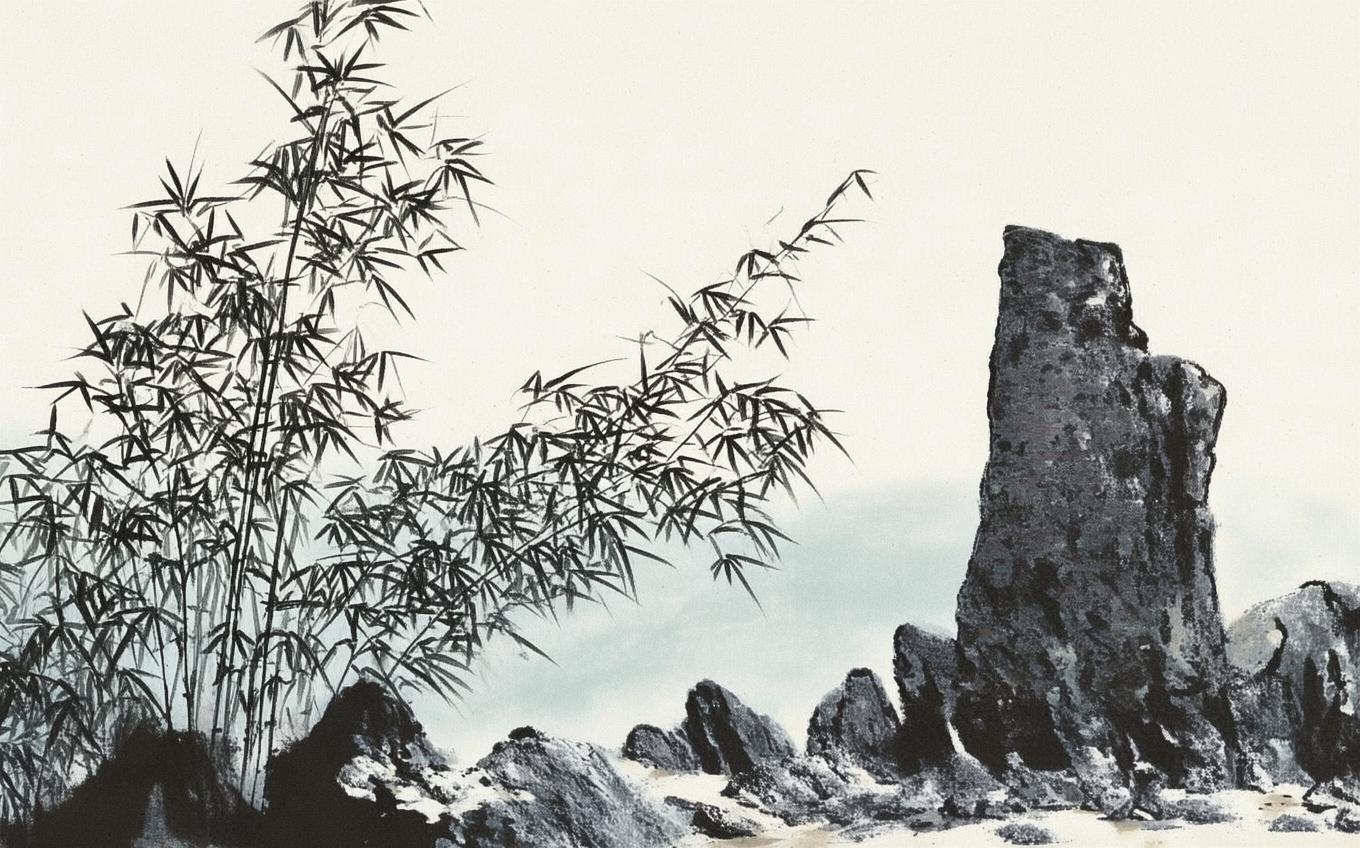Analysis of "竹石" - Classical Chinese Poetry
Introduction
The poem "竹石" (Zhú Shí, "Bamboo and Rock") is a celebrated work by the Qing Dynasty poet and painter Zheng Xie (郑燮, 1693–1765), better known by his pen name Zheng Banqiao (郑板桥). A prominent figure of the "Eight Eccentrics of Yangzhou," Zheng was renowned for his unyielding character and his mastery of calligraphy, painting, and poetry.
"竹石" is a qījué (七绝), a classical four-line poem with seven characters per line. It uses the imagery of bamboo growing from rock crevices to symbolize resilience, integrity, and perseverance—qualities highly admired in Confucian and literati traditions. The poem remains one of the most famous works in Chinese literature, embodying the scholar's ideal of moral fortitude.
The Poem: Full Text and Translation
咬定青山不放松
Yǎo dìng qīngshān bù fàngsōng
Clenching the blue mountain, never loosening its grip,
立根原在破岩中
Lì gēn yuán zài pò yán zhōng
Its roots anchored firmly in the broken rock.
千磨万击还坚劲
Qiān mó wàn jī hái jiānjìng
Though battered by endless trials, it stands strong,
任尔东西南北风
Rèn ěr dōngxī nánběi fēng
Defying all winds from east, west, south, or north.
Line-by-Line Analysis
-
"Clenching the blue mountain, never loosening its grip"
- The bamboo is personified as "clenching" the mountain, suggesting an unbreakable bond. The "blue mountain" (qīngshān) symbolizes permanence and steadfastness in Chinese culture. -
"Its roots anchored firmly in the broken rock"
- The bamboo thrives in harsh conditions, growing from cracks in rocks. This line emphasizes resilience—flourishing despite adversity. -
"Though battered by endless trials, it stands strong"
- The phrase qiān mó wàn jī ("a thousand grindings, ten thousand strikes") conveys relentless hardship. Yet, the bamboo remains unyielding. -
"Defying all winds from east, west, south, or north"
- The winds represent life’s unpredictable challenges. The bamboo’s defiance mirrors the Confucian ideal of maintaining moral integrity despite external pressures.
Themes and Symbolism
-
Resilience and Integrity
Bamboo is a recurring symbol in Chinese art and literature, representing flexibility without breaking. Here, it embodies the scholar-official’s resolve to uphold principles despite hardship. -
Nature as a Moral Teacher
The poem reflects the Daoist and Confucian belief that nature offers lessons in virtuous living. The bamboo’s endurance serves as a model for human conduct. -
Defiance Against Adversity
The "winds" symbolize societal or political turmoil. Zheng Banqiao, known for his refusal to compromise his ideals, uses the bamboo to express his own unshaken stance.
Cultural Context
Zheng Banqiao lived during the Qing Dynasty, a period of strict Confucian orthodoxy. As a literatus (scholar-artist), he often criticized corruption and championed the welfare of common people. His poetry and paintings frequently featured bamboo, aligning with the wenren (文人) tradition, where natural imagery conveyed moral and philosophical messages.
"竹石" resonates deeply in Chinese culture because it encapsulates the ideal of jianren (坚韧, tenacity)—a virtue praised in both personal and political life. The poem’s enduring popularity lies in its universal message: true strength comes from inner conviction, not external circumstances.
Conclusion
"竹石" is a masterpiece of classical Chinese poetry, blending vivid natural imagery with profound moral philosophy. Through the metaphor of bamboo, Zheng Banqiao celebrates the unyielding spirit that defines both nature and human character.
In today’s world, where challenges are ever-present, the poem’s message remains timeless: like the bamboo rooted in rock, we too can stand firm against the storms of life. Its simplicity and depth continue to inspire readers across cultures, offering a lesson in resilience that transcends time and borders.




Comments (0)
No comments yet. Be the first to comment!